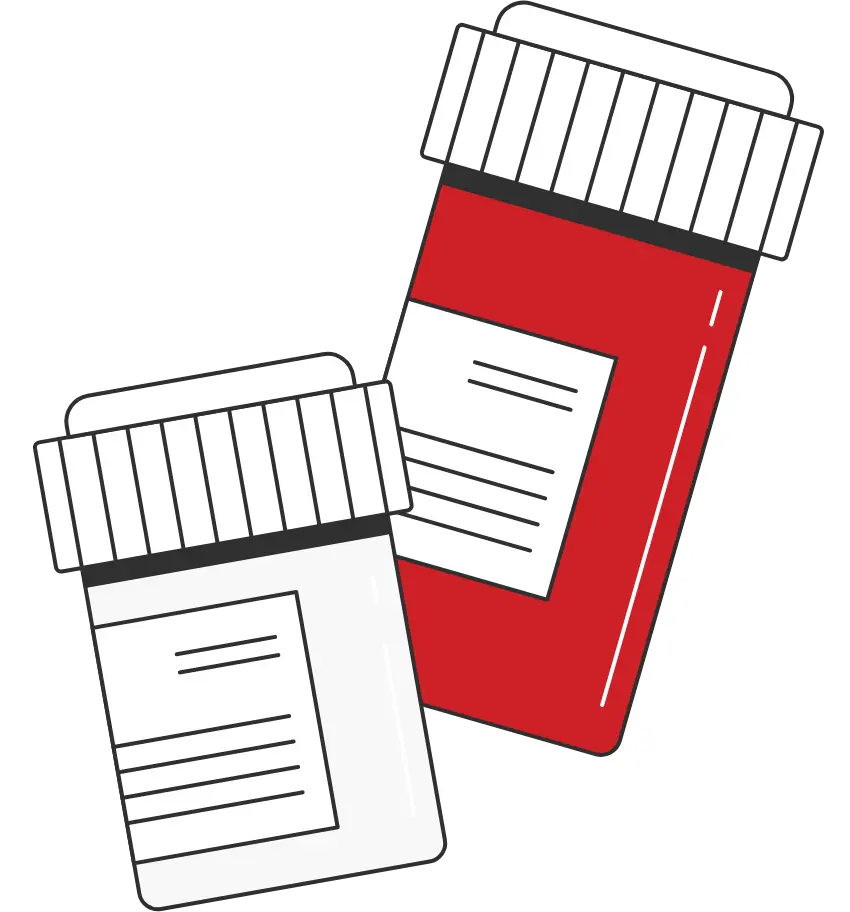Understanding Specialty Pharmacy
Specialty pharmacies play a critical role in supporting public health by addressing the complex needs of patients with serious medical conditions such as cancer, multiple sclerosis, organ transplantation, rare diseases, HIV/AIDS, and cystic fibrosis. By ensuring access to life-saving treatments and comprehensive care, these pharmacies contribute to improved health outcomes and reduced long-term healthcare costs—key priorities for policymakers committed to building a healthier and more resilient population.
What Are Specialty Medications?
Like the conditions they treat, specialty medications are more complex than most prescription medications and are not typically available at traditional pharmacies.
Despite making up approximately 3% of overall prescription volume, specialty medications accounted for over 54% of the U.S. drug spend in 2023.
Specialty Medications Typically Involve:
Putting the “Special” in Specialty
Due to the high cost of specialty drugs, health plans and drug manufacturers make sure that pharmacies are qualified to coordinate patient care, closely manage patients to ensure drug adherence, and appropriately store and manage transport of these medications to protect against loss and waste.
Specialty Pharmacies are accredited by independent, third party, nationally recognized accreditors ensuring consistent quality of care.
The medications and expert services that specialty pharmacies provide expedite patient access to care, ensure appropriate medication use, and achieve superior clinical and cost-effective outcomes.
Specialty Pharmacies & the Patient Journey
Following an initial diagnosis from their provider, the specialty pharmacy is deeply involved in a patient’s full treatment journey from the start.
- Coordination with provider
- Patient consultation
- Coordination with insurance
- Financial assistance
- Medication delivery
- Ongoing therapy review
- Ongoing patient education
- Care coordination
- Complex therapy management
- Clinical follow-up & intervention
- 24/7 patient support & guidance
- Adherence support

A specialty pharmacy’s highest priority is ensuring that the patient’s treatment journey is as smooth, safe, and effective as possible.
There are a number of different types of specialty pharmacies, including:
Independent
Not owned by a larger entity like a pharmacy benefit manager (PBM) or payer.
Hospital/Health System
Dispenses and manages specialty medications from within a hospital facility.
Larger Retailer
Established retail chain that also operates a dedicated specialty pharmacy division.
Affiliated
Connected to a larger healthcare network, like an insurance company.
Grocery Store Owned
Located within and owed by a grocery store.
Specialty Pharmacies vs. Traditional Retail/Mail Order Pharmacies
Specialty pharmacies are capable of addressing complex specialty drug and patient management, including:
NASP Submits Written Testimony for Senate Finance Committee Hearing “Lower Health Care Costs for Americans: Understanding the Benefits of the Inflation Reduction Act.”
Amid House Oversight Hearing, Pharmacy Organizations Issue United Call for Action on ‘Must-Pass’ PBM Reform Legislation
NASP Applauds the Senate Finance Chairman for Working to Address Unfair PBM Practices
With a united voice, Pharmacy urges Congress to enact necessary pharmacy benefit manager (PBM) reforms without delay
NASP Applauds the Senate Finance Committee for Taking Additional Steps to Address Anticompetitive PBM Practices
NASP Thanks the Senate Finance Committee for Taking Initial Steps to Address Anticompetitive PBM Practices
CMS proposes rule requiring Part D plan sponsors to apply all Rx price concessions to point of sale—NASP (naspnet.org)
Additional Resources
NASP Action
NASP advocates for fair and reasonable pharmacy reimbursement and to protect patient medication access and pharmacy choice.
Questions About Specialty Pharmacy?
Reach Out Now to the NASP Team Now!
About NASP
The National Association of Specialty Pharmacy (NASP) is the only national association representing all specialty pharmacy industry stakeholders. NASP’s mission is to elevate the practice of specialty pharmacy by developing, delivering and promoting continuing professional education and specialty certification while advocating for public policies that ensure patients have appropriate access to specialty medications in tandem with critical services.
NASP supports a free market healthcare system in which all specialty pharmacies compete on the same fair and level playing field, because that is in the best interest of the patients we collectively serve. NASP is committed to working with all stakeholders and policymakers to ensure that all patients have access to the life-saving medications they need and the high touch patient care and support services they deserve from the pharmacy of their choosing.
Learn more at naspnet.org.